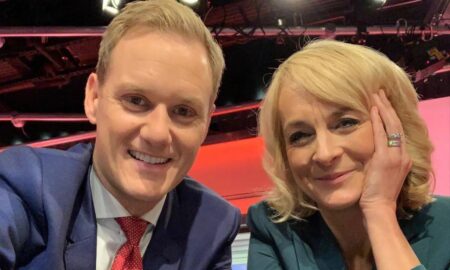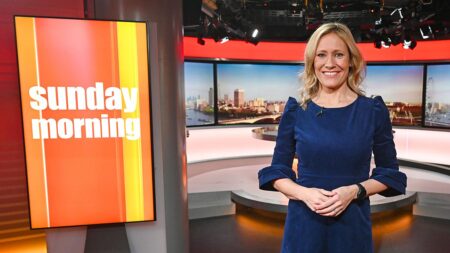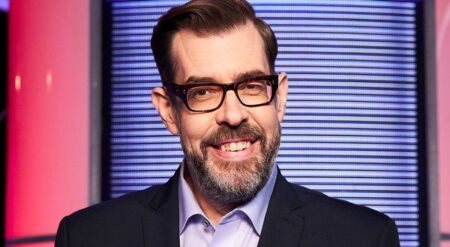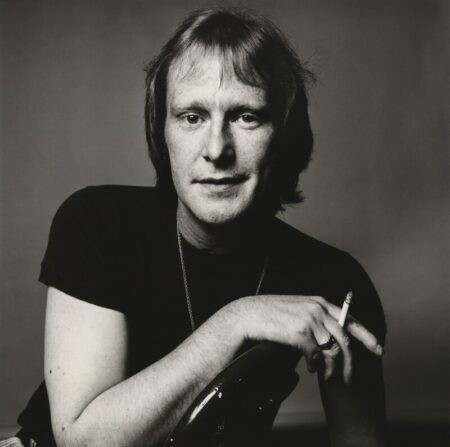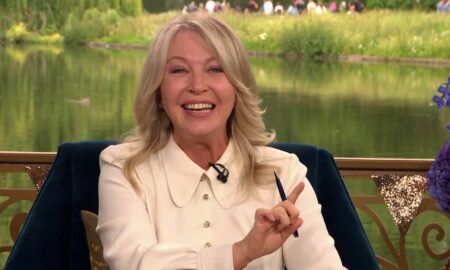When, in years to come, my mind flits back to the 2021/22 academic year, it will not so much be global events (which have, let’s face it, been unremittingly depressing) that I recall. Rather, I will look back on this twelvemonth as a period of departures – and returns. For myself, after nearly seven joyless years in the barren wasteland of the northwest, I returned to University of the Arts London, formerly my stomping ground as an associate lecturer, to take up a new post as senior lecturer. I have already blogged my excitement at the return to face-to-face learning, and it is very pleasant having a commute from Muswell Hill that takes less than three and a half hours each way.
A small part of me will always belong to my former employers, of course – if only in the form of the various REF outputs I contributed to their UoA34 submission, which apparently did very nicely for them. [1]
You’re welcome, guys.
However, have all departures and returns this year been as positive?
Well, in September Louise Minchin left BBC’s Breakfast after a whopping two decades. For me, this was not the most positive start to the new academic year. I’ve blogged before about my reliance on the broadcast schedule to make sense of my day, my week, and arguably even my existence, and it’s the Breakfast crew who set me up of a morning. In my view, the earlier segments of the week, featuring Louise and Dan Walker (of whom more anon), have always proved more palatable than the later Naga Munchetty and Charlie Stayt pairing, because – whatever you think of Walker – Louise Minchin has always been so thoroughly pleasant, professional and… well, just plan nice. She was ever an island of calm in a crisis, patiently humouring Walker’s excesses, and – unlike some of her colleagues – never wasted her time or ours trying to make the weather person look silly, or baiting Matt Tebutt. [2]
Of course, the important thing about the breakfast sofa is not only to get the chemistry right – but not to fix what ain’t broke(n). Naga was often visibly irked when paired with Dan Walker, treating him (not unreasonably) like an annoying younger cousin on a playdate, and for his part Charlie always becomes a little tetchy when he discovers that he is not seated next to Naga at the weekend. It pains me to point this out, but the great man deliberately avoids eye contact when one particular stand-in is daring enough to attempt a bit of Saturday bantz, grimly closing down each brave stab at sociability as she brightly battles on, receiving not so much as a glance of encouragement from the Stayt of little grace.
That was never an issue with Louise, who effortlessly rose above any and all potential embarrassments, including wearing her dress back-to-front live on air, and Benji the corgi springing a leak on the sofa. Upon her departure, Louise was replaced by Sally Nugent, who had been a semi-regular for several years. Now, isn’t it interesting that, when a male Breakfast presenter departs, there is often an element of stunt casting in the search for a replacement? As when Dan ‘the Football Focus bloke’ took over from lovely Bill Turnbull in 2016? By contrast, when a female presenter decides it’s time to pack in the early starts, their job is usually inherited by someone who is already in situ – and Sally has been waiting in the wings for some time. More recently, another long-serving stand-in, Jon Kay (the nice man with the beard), seems to have taken over just as smoothly from Dan Walker – but there is reportedly unease at the BBC over the speed with which this particular change of personnel has been executed, and questions raised as to whether a bigger name can’t be found. Why was there no similar kerfuffle over Sally stepping into Louise’s shoes? Is the handover only worthy of press comment when it’s the male who’s being replaced?
Anyway, Louise was given a splendid send-off in the (rare, believe me) Salford sunshine. Never mind, I thought; it will soon be the new Strictly season, and that will take my mind off the loss. However, for some reason the show failed to click with me this year. It might have been because the launch’s pre-recorded VT pairings – forced upon the team by COVID restrictions – felt a little staged. However, it’s more likely that the changes wrought by another departure – that of Zoe Ball on sister show It Takes Two – affected my level of engagement. It’s not that I miss Zoe particularly, but without Ball we no longer have Waite’s Warm-Up, with Ian Waite – and that, for me, was an essential part of the Strictly formula. Zoe and Ian were paired together back when Ian was still one of the main show professionals, and their chemistry was impossible to deny. When shunted over to It Takes Two, Waite turned out to be TV gold, and never minded being made to appear foolish live on air, particularly when viewers voted for the Halloween costume they most wanted him to dress up in. I for one always got a warm glow when he whipped his wand out[3] to analyse rehearsal footage prior to Saturday’s coming performance, and on reflection I think his withdrawal from the line-up was one departure too many.
September also saw the announcement that Russell T Davies (the ‘T’ doesn’t stand for anything, so there’s no full stop after it) would be returning as Doctor Who showrunner once Chris Chibnall and Jodie Whitaker’s final run of episodes was over. Cue lots of excitement from people who want to turn the clock back to 2008, when David Tennant’s Tenth Doctor was at the height of his powers. The broadcast environment has changed a great deal since then, but RTD knows how to read the room, and his recent hiring of youthful streaming stars demonstrates a clear awareness of the need to get young people watching the show again. Back in 2005, young people presumably watched soaps – so we had the Doctor returning to the working class milieu of the Powell Estate every few weeks. These days, they watch Netflix (and little else); cue the casting of Sex Education’s Ncuti Gatwa as Doctor Number Fourteen, swiftly accompanied by Yasmin Finney from Heartstopper.
The news of Davies’ return rather overshadowed the launch of Series/Season 13 (unlucky for some), or ‘Flux’ as it turned out to be called. Now, this was not always a brilliant run of episodes, but there was some fine stuff, and it’s hard not to feel just a tad sorry for Chris Chibnall. COVID forced to him to make decisions he might not otherwise have taken, and when left to his own devices he usually came up with something watchable. I for one always enjoyed his New Year’s Day episodes, and looking back to that impossibly far-off age of 2018, his decision to go entirely episodic for Whitaker’s first year was quite bold, and paid dividends with some very decent stories. The main problem was that the Doctor wasn’t always at the centre of them.
It’s hard to lose the feeling that many people now just want to get Chibnall and Whitaker’s departures out of the way as quickly as possible. Certainly, the leaking of location photos of David Tennant and Catherine Tate in recent weeks has inevitably triggered frenzied speculation about what will be happening next year, before the current one is even over – which is a shame.
Ah, well. Some good news was clearly needed, and in November Andrew Marr announced that he was departing the BBC to get his ‘own voice back’ – bless him. The proffered reason for his departure rather says it all. To me, Marr always seemed more interested in his own opinions than in what his guests had to say, and he was the type of interviewer who equates interrupting people before they have properly begun to answer his questions with cutting edge journalism. That said, I always watched him on a Sunday morning, usually while doing the ironing – and I wouldn’t want to break my routine just because he’s flounced off to give his views the airing they so desperately need on LBC. Thankfully, Sophie Raworth was swiftly announced as interim replacement. Indubitably, when the BBC takes with one hand (Louise Minchin), it gives with the other (Raworth). Commencing in January, Raworth has got right everything that Marr did wrong, proving firm with evasive guests, but knowing when to give them enough rope to hang themselves. Unafraid to ask the difficult questions, she also allows her subjects adequate time to frame their responses – before dissecting the answer given, instead of attacking the person. One could say that Sophie has graced our Sunday mornings, whereas Andrew sometimes marred them.
Of course, rather than give Raworth the gig permanently, the BBC has now decided to hand the role over to Laura Kuenssberg, who couldn’t be more delighted. I’ll reserve judgement, but I do hope that Sophie Raworth gets her own vehicle soon, because she has handled what could have been a thankless task with aplomb.
So, 2022 marched in, and in April further departures were announced at the Beeb. Hot on Louise’s footsteps, Dan Walker opted to leave BBC Breakfast for Channel 5, while Pointless co-presenter and stalwart Richard Osman declared that, from now on, he is only going to take part in the celebrity version.
So there.
I have mixed feelings about Dan Walker. For me, his football associations were a black mark against him even before he started, and his on-screen manner was suggestive of a gauche sixth former who has been chosen to interview a visiting speaker during assembly. In brief, he never properly filled Bill Turnbull’s shoes. However, I know he has his admirers, and Breakfast’s loss is Channel 5’s gain, I’m sure.
But how did all this come about? Well, I would hazard a guess that Walker’s departure was due largely to his application of what I term The Strictly Gambit in late 2021 – a gambit that was, for Walker, only partially successful.
Allow me to explain.
When a BBC Breakfast presenter feels in need of a career change, they take part in Strictly. Those involved make it very clear that it’s all just a bit of a laugh – and of course they won’t get very far – but actually they are deadly serious about using the glitterball to leapfrog their way to something less Breakfast-y.
You find that difficult to believe? Allow me to present my evidence. Here follows a brief overview of what has happened to other Breakfast presenters after appearing on Strictly, demonstrating in most cases a clear correlation between the degree of their success in the dance contest and their subsequent career progression:
Bill Turnbull: The Breakfast stalwart competed in the third series of Strictly, soldiered on through an ankle injury, and was voted off in the seventh week. He had made it halfway, which is respectable, and remained on the BBC sofa until 2016. Sure, the fans loved him – but didn’t they love him already? No change there, then.
Chris Hollins: The sports correspondent turned out to be actually really rather good, won the final – and did not stick with Breakfast when it moved to Salford (sensible fellow; London is much nicer). He now does Cash in the Attic, which does not require such early starts.
Susannah Reid: Bill Turnbull’s co-presenter also turned out to be actually really rather quite good, finished as a runner-up, and moved to ITV for (presumably) more money.
Ore Oduba: The sports correspondent turned out to be actually really rather good, cried an awful lot, and won the final. I remember him guesting on a Tim Vine comedy special that was surprisingly unfunny, but for a while there he definitely seemed destined for great things. I think he now appears in West End musicals, which must be preferable to waking up at 4 am in Salford. What isn’t?
Carole Kirkwood: The weather presenter turned out not to be quite so great, though I thought she definitely improved week on week – which is supposed to be the point, isn’t it? And yes, I did vote for her. Having failed to whip up a storm on the dance floor (sorry), she went out in the seventh week, just like Bill. She continues to work on Breakfast.
Naga Munchetty: The long-standing (or sitting?) presenter was really not very good, going out in her fourth week while dressed as a mermaid. She tried hard, but all these years later she is still co-presenting Breakfast with Charlie. This is both a crime, and a punishment.
Mike Bushell: The sports correspondent was OK, and clearly tried hard. He turned out not to be brilliant enough to make it to the final, but not so bad that he became the joke contestant that people keep in the competition for a laugh (which I think is what he might have been banking on). He went out after eight weeks, and is still on Breakfast. I have a soft spot for Mike, because he once came to an open day at Salford, and laughed at my jokes (somebody has to) when I did the theory spiel.
And that, friends, is The Strictly Gambit. If you go on and win, you have essentially written your ticket to move on to better things – assuming you regard ITV, the West End or Cash in the Attic as preferable to Breakfast. Otherwise, while you might have raised your profile with the public, you will probably still be stuck on the BBC’s red sofa until you retire.
Dan Walker presents a rather particular case. He turned out to be quite good (though I wasn’t watching; see earlier), and the public liked him. Part of doing well on Strictly is of course generating a bit of publicity, and getting the public on your side, and Walker played a blinder by talking about how his Christian faith had shaped his experience. To be fair, he had already discussed this in interviews prior to doing Strictly, but I daresay it didn’t do him any harm.
And it sort of worked. Dan the dancing man made it all the way to the quarter-finals before being voted off. Was this good enough to move to ITV, a la Reid? Well, no – not quite. But Channel 5? Absolutely: it’s the next best thing – for (presumably) more money.
Someone who probably doesn’t need the money is Richard Osman, whose resignation from Pointless is an entirely different kettle of fish. He has – very earnestly – explained that, what with his brilliant writing career now in the ascendant, he can no longer give the show the time it so clearly deserves, which is a great shame.
What, you didn’t know that Richard Osman has become this millennium’s Agatha Christie? Oh, yes; he is now a best-selling mystery author (two whole books!), and Steven Spielberg himself has optioned the rights to what is apparently going to be a series of novels. It’s all very exciting, and Richard clearly no longer has the capacity to sit in a TV studio for hours on end – unless it’s for Pointless Celebrities, which he is happy to continue co-presenting since he gets to rub shoulders with really famous people like Jedward.
Back in 2009 I attended an early recording of a new show called Pointless at the old Television Centre, before any episodes had been broadcast – and it did feel like a bit of a slog. When watched live, there is a limit to how many times one can crack a grin at Xander’s references to a Pointless trophy (and hey – aren’t all trophies pointless, ultimately?), so thirteen years on I can understand fatigue having set in. And yet… this is the show that made Richard Osman. Sure, he was already very successful behind the scenes as a high-powered Endemol exec, but none of us even knew who he was until he assumed the position behind that fake laptop – and how many people would be buying his books if they hadn’t seen him on the telly? Osman has become such an integral part of the programme’s popularity that it is difficult to imagine it with a rotating series of replacement co-hosts. Few people have a better grasp of direct address and para-social interaction, and when Osman says, ‘Very well done if you got that one at home,’ it is a stronger viewer than I who can resist the urge to respond: ‘Thank you, Richard!’
We will miss him more than we can possibly know.
May began with the sad passing of actor Dennis Waterman, which surprised and upset those of us who had been unaware of his recent health issues. When my partner and I found out, in the early afternoon of Sunday the 8th, we immediately began a triple bill of Mr Waterman’s work by way of tribute.
For once, I am not being facetious; I think Dennis Waterman was one of the most consistent small screen actors of the 1970s and 1980s, but his performances were so natural and understated that viewers and critics tended to make more fuss of (arguably showier, though equally talented) co-stars like John Thaw and George Cole. For the record, the shows we watched were as follows:
The Sweeney: ‘Hit and Run’, first broadcast 29th September 1975. This is the one where Carter’s (Waterman) wife Alison (a pre-Juliet Bravo Stephanie Turner) is mistakenly offed by some dodgy geezers, leaving George to pick up the pieces. My partner, who didn’t know what was coming, was genuinely shocked. Series regulars Thaw and Garfield Morgan are as excellent as one would expect, and the classy guest cast includes Patrick Troughton, Michael Sheard, Sheila Ruskin and Gary Waldhorn (also recently departed). But this is Waterman’s episode, whether sharing lunch in the park with his soon-to-be-deceased wife, or left alone, contemplating the walls of their home in the episode’s poignant final shot.
Minder: ‘Rocky Eight and a Half’, first broadcast 11th January 1984. This was the first Minder I ever saw, and by series four the comedic elements had become the show’s defining feature, not least via Arthur Daley’s trademark malapropisms and references to ’Er Indoors. This could have been galling for Waterman, around whose character the show was originally conceived, but there’s no sign of it in his typically reliable and likeable performance as Terry McCann, who is as always on the verge of quitting his role as Daley’s titular bodyguard, but is tempted into a boxing rematch with the champion for whom he took a dive years before. I never understand why people say Carter and McCann were essentially the same character, and anyone who thinks Waterman was a one-trick pony should compare this episode with ‘Hit and Run’, because his comedic timing is easily the equal of George Cole’s, without becoming hammy or overplayed.
New Tricks: ‘Creative Problem Solving’, originally broadcast 6th June 2005. Waterman’s career enjoyed something of a renaissance with this cold case crime drama, which at its peak regularly pulled in audiences of between 8 and 9 million. The performance style may have become a little broader, but as former thief-taker Jerry Standing Waterman turned out to be the longest-running series mainstay. The fact that the focus was on old coppers – and often old villains – meant that, like Midsomer Murders, New Tricks gave a more senior generation of actors a chance to show what they could do, and former colleagues such as Minder stablemates George Cole and Patrick Malahide – plus Stay Lucky co-star Jan Francis – all made knowing guest appearances. This episode is the turn of Anthony Valentine (another Minder semi-regular), against whom Waterman spars nicely when Jerry goes undercover to establish the provenance of a dodgy diamond. Again, this was one of the first episodes I saw, and it was nice to see old dogs like Waterman, Alun Armstrong and James Bolam still doing quality work; Jerry’s scenes with his numerous ex-wives were always a high point.
For the record, I would also have liked to fit in an episode of Waterman’s 1990s sitcom On the Up (‘Just the one, Mrs Wembley?’ was a long-running catchphrase in our house), but time is, alas, the fire in which we burn.
To sum up, Dennis Waterman was a far more reliable and versatile performer than he probably got credit for – possibly because one of his key skills was making other actors look good.
On a more positive note, later in the month Midsomer Murders celebrated its twenty-fifth anniversary with a specially recorded documentary and a brand new episode, and then promptly disappeared from the schedules again, as is now the programme’s wont. But it was nice to see Nettles back in the doc, even if Tom Barnaby has yet to make a return to the main show.
Also in May, Obi Wan Kenobi finally ‘dropped’ (is that the right word?) on Disney+. Now, as you may know, I have mixed feelings about the whole streaming thing, but my partner has a Disney account – and this is, after all, STAR WARS. Proper Star Wars, I mean; not Book of Boba Fett (which I skipped), but Ewan McGregor doing a very decent job of showing us a disheartened ‘Ben’ Kenobi ten years after the last of the prequels (which everyone said at the time were dreadful, but now seem to have enjoyed something of a reappraisal). Obi-Wan initially struggles to get his Jedi mojo working when an old friend asks him to undertake a special mission, but then… Well, I won’t say any more; if Star Wars was the first film you saw in the cinema (as it was for me), I think you will enjoy it.
That wizard is not just a crazy old man.
By the way, while watching all this stuff on Disney+, an idea has come to me for my own streaming series action hero. He’s called Skip Recap; he lives very much in the here and now, and doesn’t like looking back.
No?
Never mind; we are now very nearly up to date. At the end of May, Amanda Burton returned as Sam Ryan for a somewhat truncated run of Silent Witness episodes, which couldn’t make its mind up whether it was a series or a serial. Given that Sam was replaced by Nikki Alexander (Emilia Fox) after she departed in 2006 – and the only common link between the two was that they both worked with Leo Dalton (William Gaminara) and Harry Cunningham (Tom Ward) – I was hoping for some mention of these former cast members. But no. Instead it turned out that both Sam and Nikki were connected to a guy called Tom Faulkner (Matthew Gravelle), who we’d never heard of before, and turned out to be Nikki’s ex-husband. Add to that the fact that Mark Frost, who played Nikki’s love interest several series back, turned up playing a completely different character, and… Well, I got a bit lost. To cap it all, new series regular Simone (Genesis Lynea) – who was rather good – left at the end of the story.
Sigh.
But never fear, because in the meantime we had the Platinum Jubilee Weekend to perk us all up with some senseless Jingoism. Now, the future fate of the monarchy is a matter of supreme indifference to me, but I do like a nice pop ‘n’ rock concert. At the risk of sounding like my dad, I had no idea who most of these people were, but my partner enjoyed Adam Lambert + Queen (it’s not really the same without Freddie and ‘Deacs’, is it?). Rod Stewart sounded as off-key this time round as Elton and Macca were ten years ago, but I thought the Durans were quite good. What with Prince Charles deputising for Her Maj, a trick was missed in the Lion King medley by not including ‘I Just Can’t Wait to Be King’, but there you go.
The high point of what could have been a gruelling three-day endurance test was a particularly welcome return: yes, Kirsty Young was back on our screens. Desert Island Discs just hasn’t been the same without her, and her Jubilee natters with the great and the good (Penelope Keith! Michael Palin! Alan Titchmarsh! Len Goodman…) showed that she hasn’t lost the knack of sounding genuinely interested in what her guests have to say, no matter who they are or what the subject (in Len’s case, curry).
It was reassuring to know that a firm hand was on the tiller.
And that pretty much brings us to here, and now, and the end of the blog. What, ultimately, has it taught us? Well, reading back it seems I definitely like my television peopled by mature, capable females, but lack a similar penchant for their male counterparts (unless they have a wand, or perhaps a lightsabre).
I’ll leave you to chew that one over during the break. CST will doubtless return in the new academic year, so before I depart (and then, I hope, return), a very safe and happy summer to you all!
Dr Richard Hewett is Senior Lecturer in Contextual Studies for Film and Television at University of the Arts London. He has previously contributed articles to The Journal of British Cinema and Television, The Historical Journal of Film, Radio and Television, Critical Studies in Television, Adaptation, SERIES – International Journal of Serial Narratives and Comedy Studies. His 2017 monograph, The Changing Spaces of Television Acting, was published in paperback form in 2020, and he finally received some royalties from it last year. For further information on academic publications, see here.
Footnotes
[1] I don’t know whether I’m allowed to share the actual stats with you, but I know they did much better than in 2014. I started working there in 2015, so feel free to draw your own conclusions.
[2] Did you see the episode when Naga and Charlie guested on Saturday Kitchen? They had actual viewer complaints …
[3] This is not a euphemism: Ian used to have an electronic pointy stick, which he would use to draw diagrams and highlight fleckerls and suchlike on the monitor.


